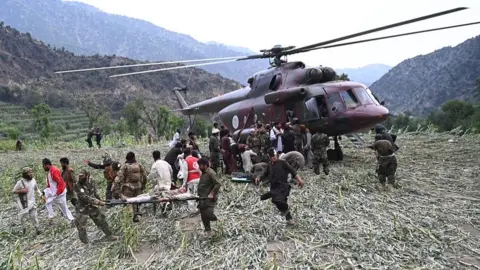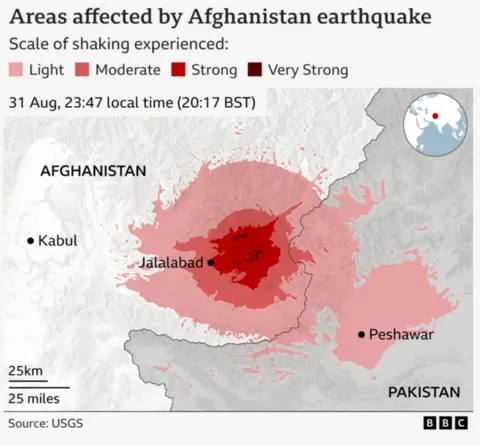UNITED NATIONS — The United Nations has issued an initial assessment revealing extensive destruction caused by a recent earthquake in Afghanistan. On August 31, a powerful 6.0 magnitude quake struck the eastern mountainous region, resulting in the destruction of 5,230 homes and damage to 672 others across 49 villages. However, the UN acknowledged that it has been unable to reach the majority of the remote areas affected.
Shannon O’Hara, the coordination chief for the UN humanitarian office in Afghanistan, emphasized the challenges faced by teams in the aftermath of the earthquake, exacerbated by ongoing aftershocks measuring between 5.2 and 5.6. These subsequent tremors have significantly hindered assessment efforts across the 441 villages impacted.
The earthquake's immediate toll included at least 2,200 deaths, with estimates suggesting that up to 500,000 people—a significant portion being children and forcibly returned refugees—could be affected. The logistical difficulties posed by damaged roads have delayed the arrival of humanitarian aid, with O'Hara reporting that it took her over six hours to travel just 100 kilometers from Jalalabad to the epicenter of the destruction.
As the UN team approached the worst-hit areas, they witnessed entire families displaced and walking away, carrying only their belongings. Survivors were found living in overcrowded tents or exposed to the elements, as assessments continue to reveal more extensive devastation.
O’Hara noted the immediate humanitarian needs, including clean water, food, tents, and warm clothing, which are critical as winter approaches. Furthermore, alarming conditions exist in the region, with no access to clean drinking water and the threat of cholera outbreaks due to inadequate sanitation practices.
With time running out and the risk of heavy rains and potentially more landslides, urgent action is needed to mitigate further suffering. The UN is set to launch an emergency appeal for funding to support survival efforts as winter approaches.
Despite the chaos, O'Hara noted that Taliban authorities are leading rescue operations and there have been no significant obstacles to humanitarian efforts. The involvement of women in health and aid distribution is being ensured, responding to concerns about existing restrictions faced by women and girls in the Taliban-controlled regions.



















